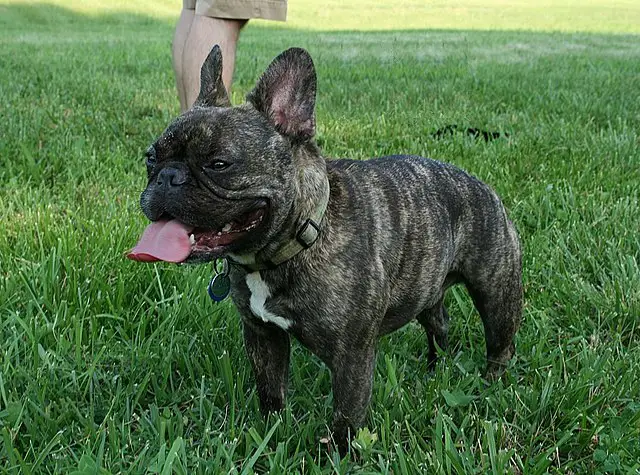What is a clingy dog?
Clingy dog behavior refers to when a dog is overly dependent on and preoccupied with its owner or handler. Clingy dogs display behaviors meant to maintain constant closeness and physical contact. Common signs of a clingy dog include following you everywhere, demanding constant attention, separation anxiety when left alone, and agitation when not the center of focus.
There are several potential reasons why some dogs are more prone to clingy behavior than others, including:
- Lack of confidence – Timid, anxious, or insecure dogs often become clingy in hopes of feeling protected.
- Poor socialization – Dogs lacking socialization and environmental exposure as puppies may cling to owners later in life.
- Trauma or change – Major changes to a dog’s circumstances can trigger clingy behavior as they seek security.
- Boredom – Dogs with insufficient physical and mental stimulation may resort to clinginess.
- Age – Younger and senior dogs often grow clingier.
- Breed traits – Herding breeds and companion breeds like poodles tend to be more clingy.
While clinginess arises from the dog’s natural instincts, extreme neediness and separation anxiety can become problematic. Understanding the causes behind clingy behavior is the first step to managing it appropriately.
Poodle Characteristics
Poodles are known for being one of the most intelligent breeds of dog. In fact, according to the AKC, they are ranked as the 2nd most intelligent breed behind only the Border Collie (AKC). Poodles are quick learners and highly trainable, picking up on new commands and tricks with ease.
In addition to their intelligence, Poodles are also very energetic dogs. They have an enthusiastic nature and love being active. Poodles enjoy games, agility training, retrieving, and brisk walks or runs with their owners (Hill’s Pet). Their energetic spirit keeps them lively and engaged.
Poodles are also known for being sensitive dogs. They are very in-tune with their owners’ emotions and respond strongly to praise and scolding. Poodles aim to please their families. They thrive when treated positively and with kindness.
Extremely loyal and devoted to their families, Poodles form close bonds and attachments. They cherish spending time with their owners and enthusiastically greet them when coming home. Poodles enjoy being involved in family activities.
Despite their dignified appearance, Poodles have a playful side too. They love games and toys that provide mental and physical stimulation. Poodles enjoy retrieving toys and will often invent their own fun by grabbing household items to elicit play from their owners.
Are Poodles clingy?
Yes, Poodles are often considered to be clingy, velcro dogs. This means they tend to form very close bonds with their owners and constantly want to be by their side (source). There are several reasons Poodles display this clingy behavior:
Separation Anxiety: Poodles are prone to separation anxiety when left alone for long periods. They can become extremely stressed and anxious when separated from their owners (source). This causes them to cling very closely whenever their owner is present.
Velcro Dog Tendencies: The term “velcro dog” refers to breeds like Poodles that stick to their owners like velcro. They crave constant companionship and physical closeness with their favorite person (source). This velcro-like clinginess satisfies their need for attention and affection.
Need for Attention: Poodles are very people-oriented dogs with a high need for attention and interaction. Being ignored can stress them out. So they seek constant attention from their owners through clinging behavior and remaining physically close (source).
Why Poodles get clingy
Poodles are known to be an intensely loyal and people-oriented breed. Their clinginess often stems from innate breed traits like high sensitivity and intelligence. Poodles are very receptive to their environment and bond deeply with their owners.Source
Without proper training and socialization, a Poodle’s clinginess can become problematic. Poodles are highly trainable dogs, but they need continued reinforcement of desired behaviors. Lack of socialization can contribute to separation anxiety. A well-adjusted Poodle that gets adequate attention is less likely to display clingy behavior.Source
Clinginess may also develop in response to stress or anxiety. Changes in routine, isolation, or insufficient exercise can trigger a Poodle to become more clingy and demanding of attention. Addressing sources of stress and providing a stable environment can help minimize anxious clinginess. Some Poodles may benefit from anxiety medication prescribed by a vet.
Living with a clingy Poodle
Having a clingy Poodle can be challenging, but there are ways to manage the behavior and prevent your dog from becoming overly dependent. Focus on giving your Poodle enough attention and mental stimulation throughout the day.
Poodles are smart dogs that need a lot of exercise and playtime. Make sure your Poodle gets at least 30-60 minutes of activity daily including walks, playing fetch, or interactive toys. This will help your dog burn off excess energy and keep their mind engaged.
Crate training is an excellent tool for clingy Poodles. The crate should be a positive place with treats and toys. Start slowly, crating your dog for short periods while you are home before building up to longer durations (Source). This teaches your Poodle to be more independent.
Obedience training is also important. Work on commands that build confidence like “sit,” “down,” and “stay.” Reward calm, relaxed behavior. Ongoing training will strengthen the bond with your dog while establishing you as the leader (Source). This can reduce clingy tendencies.
With time and consistency using positive reinforcement, a clingy Poodle can learn better independence and self-soothing skills. Consulting with a professional trainer or behaviorist can also help in more severe cases.
Reducing clingy behavior
There are several effective ways to reduce clingy behavior in Poodles:
Exercise and playtime
Poodles are energetic dogs that need at least 30-60 minutes of exercise every day. Make sure your Poodle gets sufficient physical and mental stimulation through walks, playtime, puzzles, and training. A tired, well-exercised dog is less likely to be anxious and clingy.
Obedience training
Training your Poodle using positive reinforcement techniques can help build confidence and independence. Teach commands like “stay,” “settle,” and “go to your mat.” Reward calm and relaxed behavior.
Crate training
Crate training provides a safe space for your Poodle to relax. Start crate training slowly and make the crate comfortable. Providing a treat when leaving and returning can help reduce separation anxiety.
Addressing separation anxiety
For serious clinginess, consult a veterinary behaviorist. Medication or behavioral modification plans utilizing desensitization can help a Poodle with true separation anxiety learn to be alone.
When to seek help
In most cases, clinginess can be managed with training, patience, and understanding your Poodle’s needs. However, if your Poodle’s clingy behavior seems excessive or is impacting its quality of life, you may need to seek professional help.
Signs that your Poodle’s clinginess has become severe and requires intervention include:
- Severe separation anxiety – Your Poodle experiences extreme distress when left alone, including panicking, howling, destructive behavior, or even self-harm.
- Destructive behaviors – Your Poodle chews, scratches, urinates, or shows other destructive behaviors when you leave due to separation anxiety.
- Lack of improvement with training – Despite your best efforts to train and counter-condition your Poodle, its clingy behaviors persist or worsen over time.
If your Poodle shows any of these signs, it’s best to enlist the help of a professional dog trainer or veterinary behaviorist. Medications may be prescribed in extreme cases to help manage separation anxiety. The key is addressing the issue early before it leads to more severe behavioral problems down the line.
Alternatives to Poodle
While Poodles tend to be clingy dogs, there are some other breeds that are typically less clingy and more independent. Here are some alternatives to consider if you’re looking for a dog that requires a bit less constant companionship:
Some less clingy small breeds include:
– Boston Terrier
– French Bulldog
– Pomeranian
– Shiba Inu
Some medium/large breeds that tend to be more independent include:
– Siberian Husky
– Greyhound
– Afghan Hound
– Basenji
While no dog is completely free of clingy tendencies, these breeds are known for being a little more independent and tolerant of alone time than the average Poodle. Doing thorough breed research and meeting both parent dogs can help ensure you find the right temperament match.
The ideal home
The poodle is a highly active and intelligent breed that thrives when provided sufficient physical and mental stimulation. As such, poodles do best in active households that can give them at least 60-90 minutes of exercise per day through activities like walking, jogging, or playing fetch according to My Family Vets. Poodles also excel at various canine sports and competitions, so athletic owners will find an ideal companion in the poodle.
Poodles are incredibly smart and eager to please, making them one of the top dogs breeds for obedience training and trick learning. Their trainability makes them a great fit for owners who enjoy spending time on positive reinforcement training activities according to the Trusted House Sitters poodle breed guide. Keeping their active minds engaged through training prevents problem behaviors from developing.
While poodles bond strongly with their families, they are prone to separation anxiety when left alone for long periods. The poodle breed guide from Trusted House Sitters recommends this breed for families who spend a lot of time at home to keep the poodle company. Retirees or people who work from home are ideal poodle owners.
The verdict
According to multiple sources (https://puphelp.com/are-poodles-clingy/, https://happydogbreeds.com/are-poodles-clingy/) poodles tend to be a clingy breed of dog. Studies show that around 77% of poodle owners report their dogs being overly attached and protective. Poodles crave companionship and can become anxious when left alone for long periods.
However, with proper training and care, poodle owners can help manage clingy behavior in their dogs. Setting boundaries, providing mental stimulation, and avoiding rewarding clingy habits can all help reduce clinginess. Additionally, ensuring your poodle gets sufficient exercise and playtime with their owner is important.
The poodle breed is best suited for active owners who enjoy regularly interacting and bonding with their dog. Their energetic and affectionate nature makes them wonderful companions for individuals or families who can provide them with the attention, training, and activity they need to thrive.

